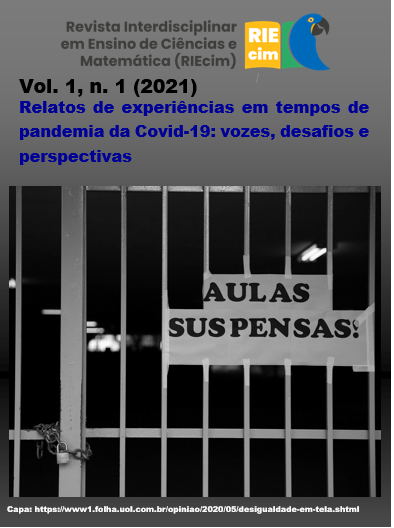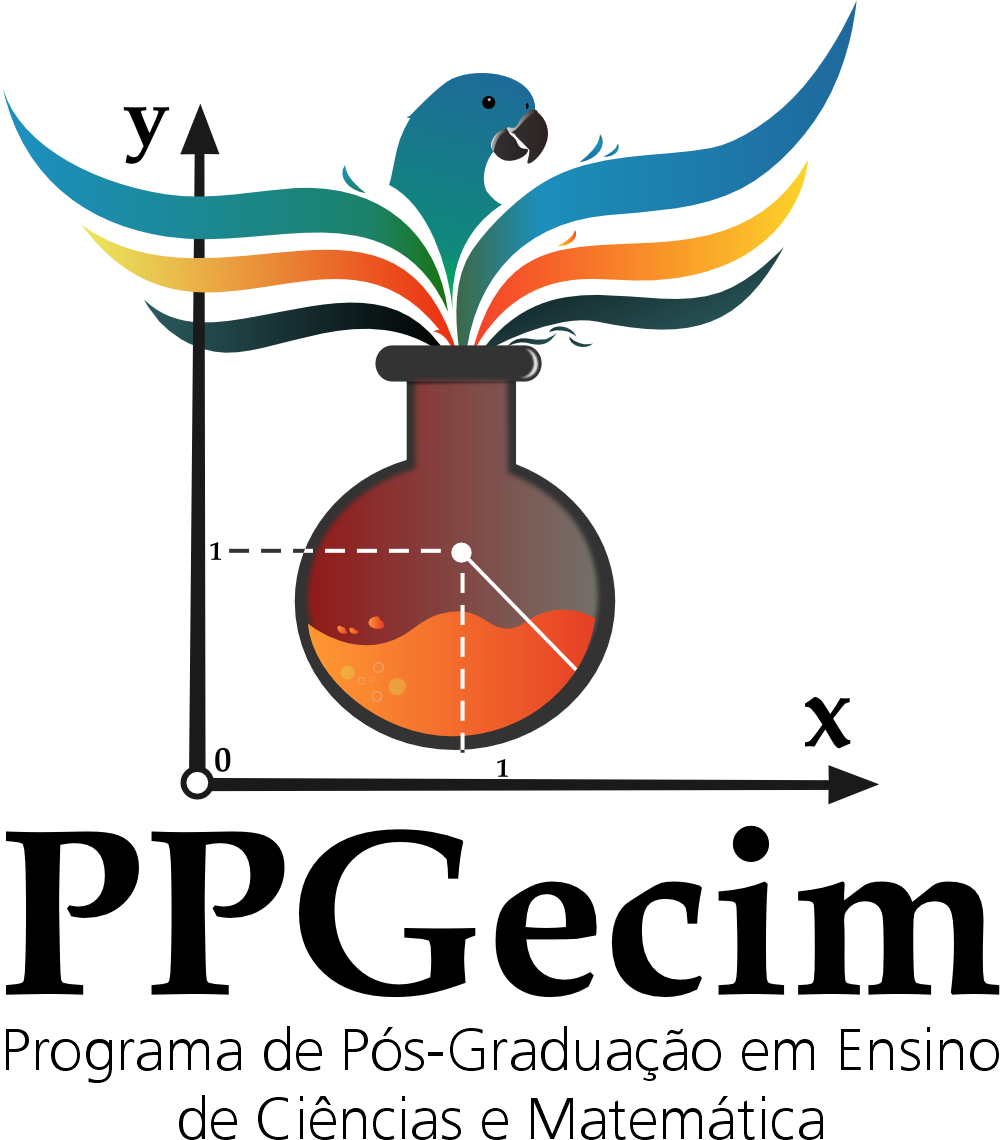THE TEACHING FRACTIONS WITH GEOGEBRA SOFTWARE IN COVID-19 PANDEMIC CONTEXT
DOI:
https://doi.org/10.20873/riecim.v1i1.11707Keywords:
Fractions, GeoGebra, MathAbstract
This article reports an experience developed with 65 sixth grade students of elementary school in a municipal school, in the city of Uberlândia, in Minas Gerais. Initially the work was planned to be conducted presentially, but due to the COVID-19 pandemic, adaptations were made in the format of interaction with the participants. Was sought to investigate the student learning impact from the remote teaching of fractions with GeoGebra software and Google applications. After a bibliographic research four didactic sequences about fractions were elaborated to be developed with GeoGebra in a virtual learning environment. Technology, combined with the student's family, has become a facilitator of teaching-learning in a pandemic context, regardless of the challenges encountered in this experience.
References
AUSUBEL, D.P.; NOVAK, J.D. e HANESIAN, H. Psicologia educacional. Rio de Janeiro,
Interamericana. Tradução para português, de Eva Nick et al., 2ª edição de Educational
psychology: a cognitive view, 1980. p.58-133.
BAKKER, A., WAGNER, D. Pandemic: lessons for today and tomorrow?. Educ Stud Math
, 1–4 (2020). https://doi.org/10.1007/s10649-020-09946-3.
BRASIL. Base Nacional Comum Curricular (BNCC). Educação é a Base. Brasília, MEC,
Disponível em:
http://basenacionalcomum.mec.gov.br/images/BNCC_EI_EF_110518_versaofinal_site.pdf
Acesso em: 13/02/2021.
MAGALHÃES, M. L. História do Ensino da Matemática: uma introdução. CAED-UFMG,
Belo Horizonte-MG, p. 68, 2013. Disponível em: url{https://www.docsity.com/pt/historiado-ensino-da-matematica-uma-introducao/5702721}. Acesso em 15 abr. 2021.
Downloads
Published
How to Cite
Issue
Section
License
Copyright (c) 2021 Michelle Cristina de Sousa Baltazar, Thiago Porto de Almeida Freitas

This work is licensed under a Creative Commons Attribution-NonCommercial 4.0 International License.
Copyright Policy
Copyrights are retained by the authors, who grant RIEcim the exclusive rights for first publication. Authors will not be remunerated for the publication of their work in this journal. Authors are permitted to enter into separate, additional contractual arrangements for the non-exclusive distribution of the work's published version in this journal (e.g., post it to an institutional repository, on a personal website, publish a translation, or as a book chapter), with acknowledgement of authorship and initial publication in this journal. The Journal's editors have the right to make textual adjustments and adaptations to conform to publication standards.
Open Access Policy
This journal provides immediate open access to its content, following the principle that freely providing scientific knowledge to the public contributes to the global democratization of knowledge. Users can read, download, copy, distribute, print, search, or use the content for any legal purpose, respecting national copyright laws and without seeking prior permission from the publisher or the author. The opinions presented in the articles are the responsibility of the authors. The Journal does not charge Article Processing Charges (APCs).
Licensing Policy - Usage License
Licensed under the Creative Commons Attribution-NonCommercial 4.0 International (CC BY-NC 4.0) License. This license allows sharing, copying, redistributing the manuscripts published in RIEcim in any medium or format. Additionally, it allows adapting, remixing, transforming, and building upon the material, as long as proper credit is given to the author and initial publication in this journal is acknowledged.


























